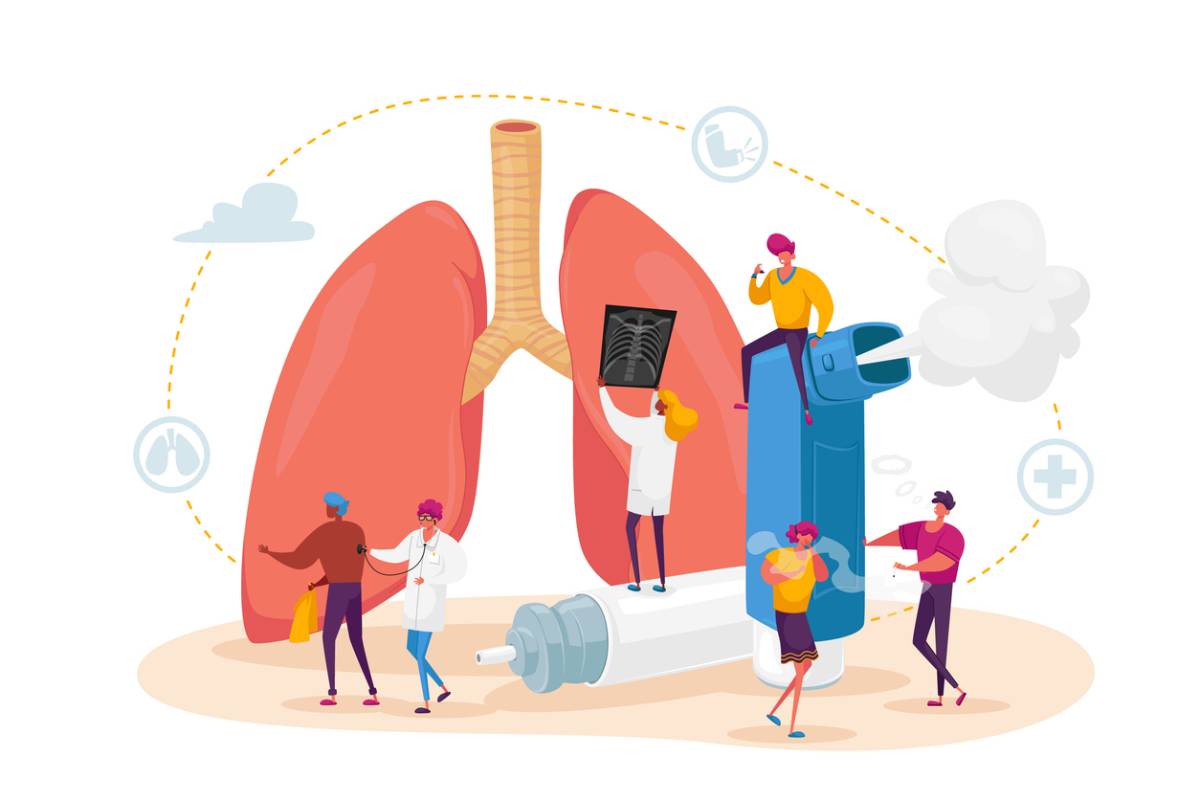On average, 1 out of 13 people have asthma in the United States. It’s a relatively common condition, and its severity can range widely from person to person. Both factors and common media portrayals of asthma have led to a number of misconceptions.
Common Misconceptions about Asthma
When it comes to treating your child’s asthma, it is vital that you follow the instructions of your pediatric pulmonologist in Queens. Well meaning people will always have advice, but they don’t have the training necessary to give medical advice. These are some of the most common things that you may hear that are also false.
You Can’t Exercise with Asthma
Physical exertion is a common trigger for asthma, and it may slow your child down at first. With that said, your asthma specialist in NYC will work with you to put together a treatment plan that will allow your child to run and play with the rest of the kids.
In fact, research shows that children who exercise develop stronger lungs. As long as your child’s asthma is under control, exercise can actually help them to improve their lung function and reduce symptoms over time.
Asthma is Psychological
Asthma is not a psychological condition. It is true that stress could cause you to breathe harder and may cause an asthma attack, but the mechanics behind the condition are entirely physical.
Treating asthma like a psychological condition could prevent you or a loved one from getting the type of medical aid you need. The cause of asthma can be found in your lungs and airways, so that’s what you need to treat.
You Can Outgrow Asthma
Many children with asthma will notice fewer attacks and symptoms as they approach adulthood. In the most positive cases, they may go years without any sign that they ever had asthma. However, that does not mean they outgrew it.
Children tend to experience fewer symptoms as their lungs get stronger and they begin to naturally avoid their known triggers. They could very well have an asthma attack at any time in adulthood even after years without symptoms.
You Can Only Treat an Active Attack
Most cases of mild asthma are only treated during an active attack with an emergency inhaler. That does not mean that those are the only times when asthma can be treated.
Children prone to more dangerous attacks are far more likely to receive regular, preventative treatment. In these cases, your pediatric pulmonologist may equip you with two medications, one for regular use and one for emergency use.
The nature of your child’s asthma treatment will be tailored to their symptoms, their triggers, and the severity of their attacks.
Asthma Medications Are Addictive
There is no substantial, peer-reviewed evidence to suggest that asthma medications are habit-forming or addictive. What we do see is evidence that some people over-use their emergency inhalers.
This scenario is often the result of poorly managed symptoms, which causes the person to use the emergency inhaler more often. It is not an addiction. But it is indicative that you need to revisit your treatment plan with your asthma doctor.
Dealing with Asthma Misinformation
Every single person is different. Your child’s asthma may look nothing like your nextdoor neighbors. A medication and treatment plan that helps them may be detrimental to someone else. That is why it is so important to put your trust in the people specifically trained to identify and treat this condition.
It’s hard to trust your child’s health to a stranger, but they have dedicated their lives to learning the science that will provide your child with the best quality of life despite their condition. These five misconceptions are just the tip of the iceberg, so find a doctor you trust.

